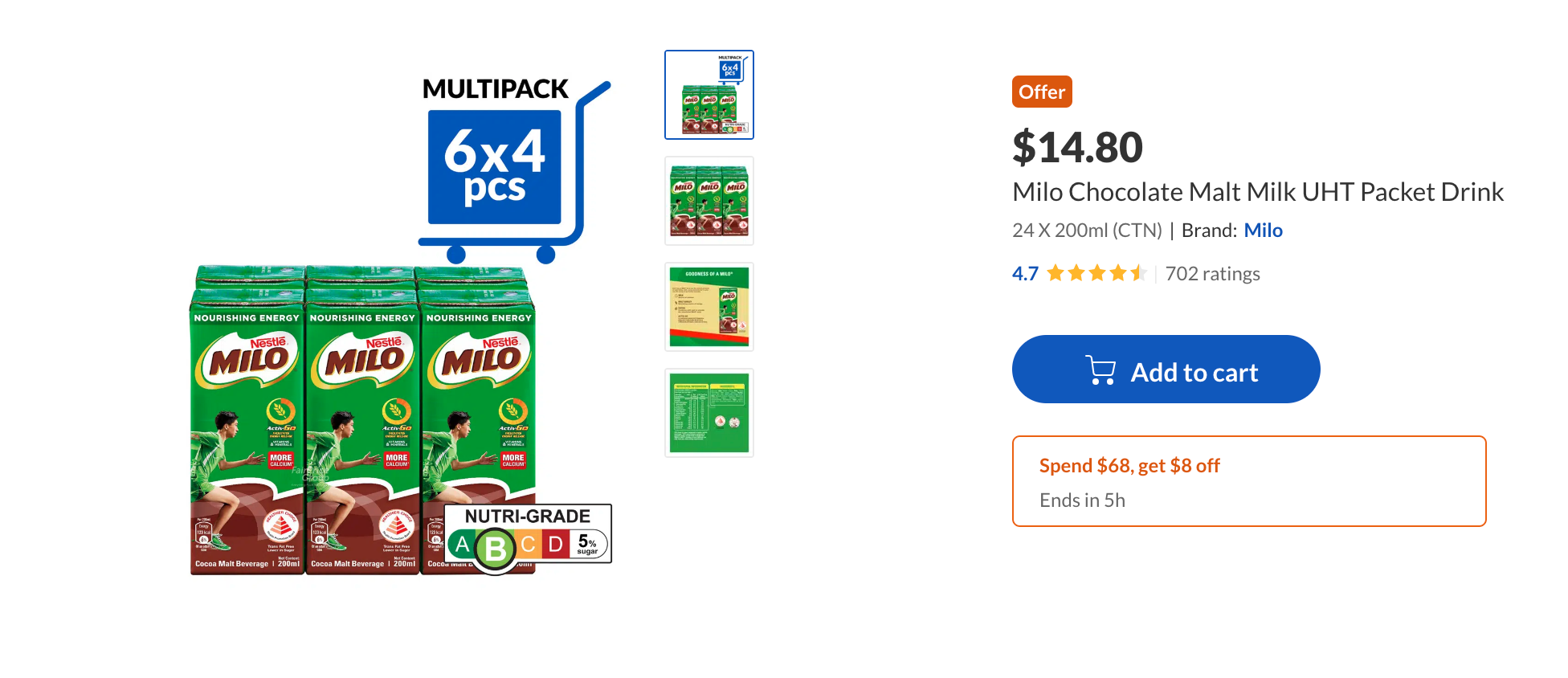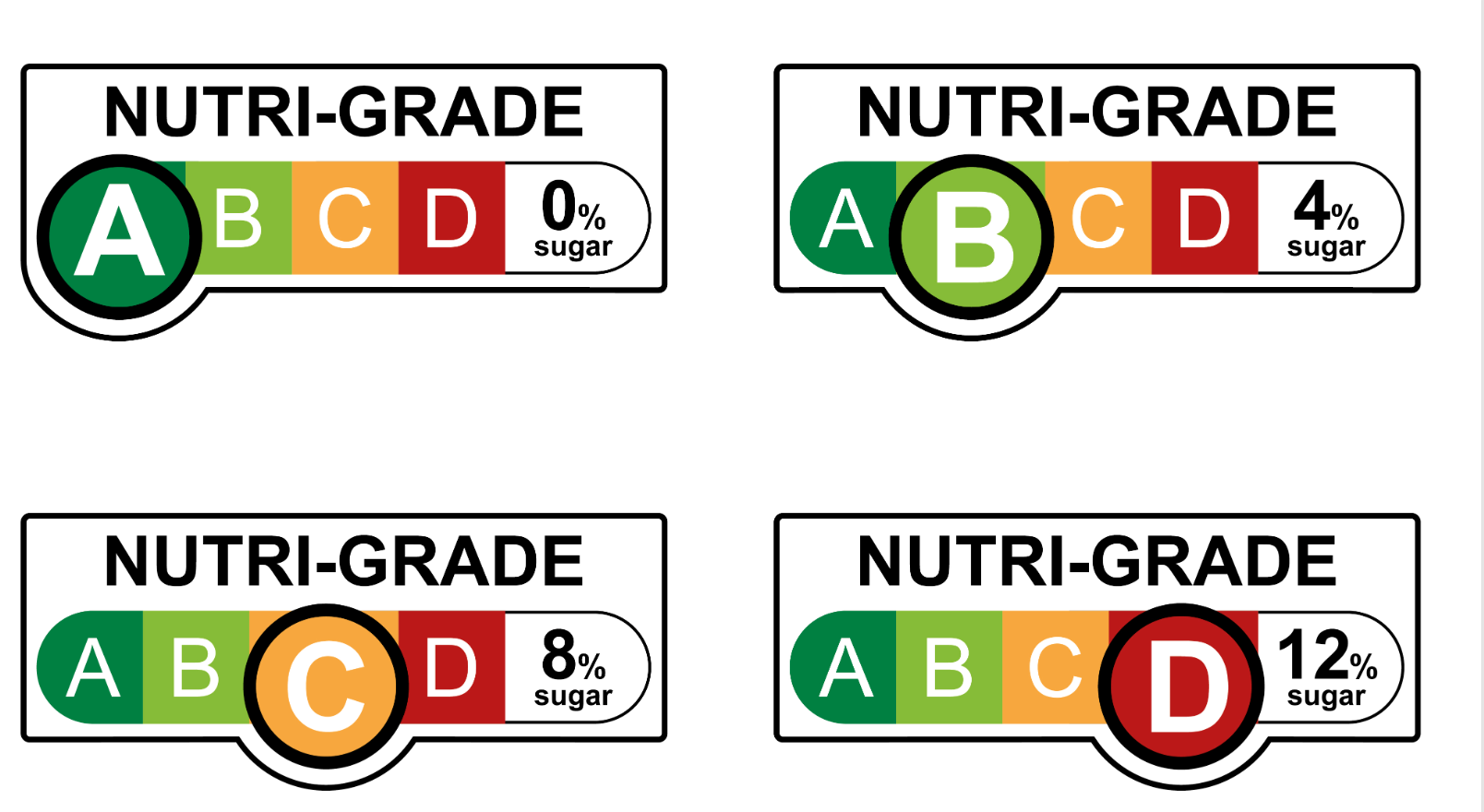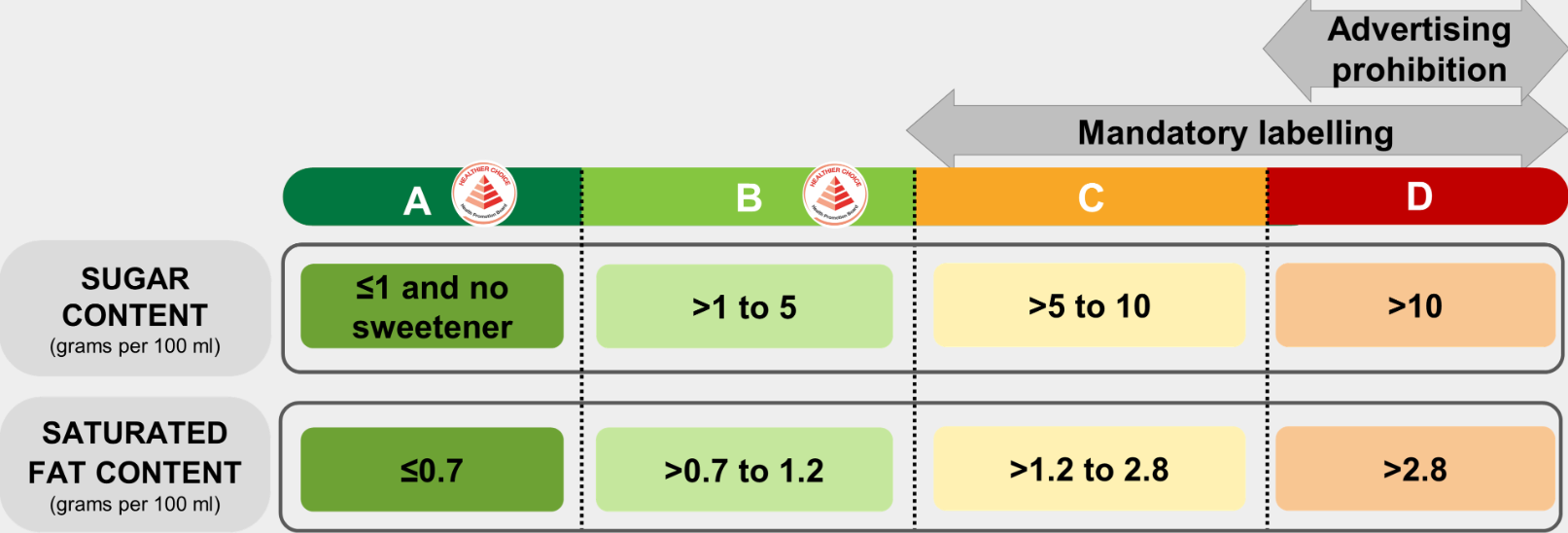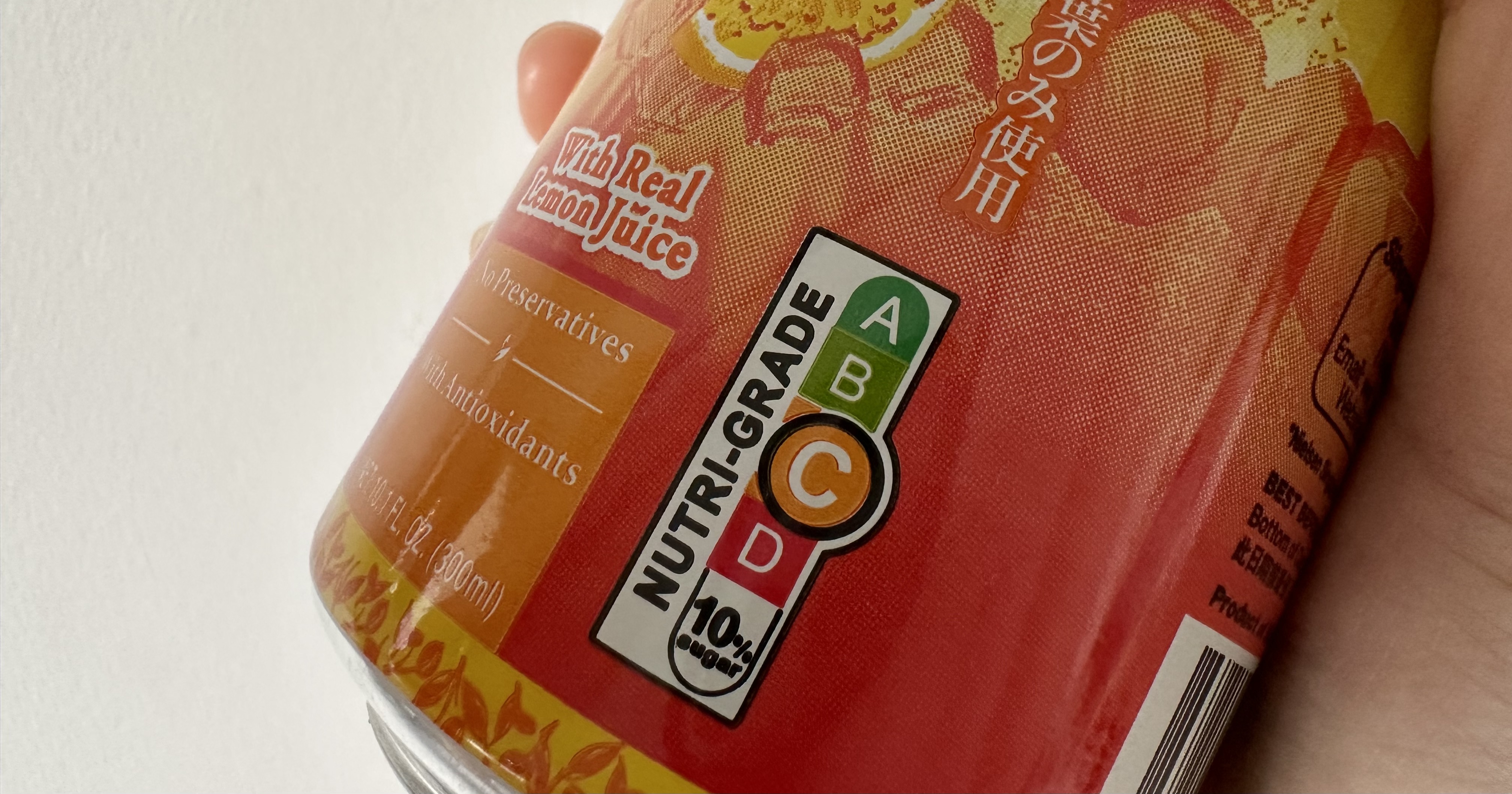Follow us on Telegram for the latest updates: https://t.me/mothershipsg
Nutrition labels have been made a part of pre-packaged drinks in Singapore well ahead of the Dec. 30, 2022 deadline.
Nutri-Grade mark labels, comprising four grades classifying drinks from A to D, with D being the unhealthiest, have been introduced by drink manufacturers on pre-packaged drinks after they changed their recipes to cut sugar and saturated fat.
The Nutri-Grade labels will appear on items with higher sugar and saturated fat content, in a scheme announced by the Ministry of Health in 2019, that includes mandatory nutrition labels and advertising prohibitions.
The products include soft drinks, milk, fruit juices, juice drinks, yogurt drinks, and instant powdered beverages.
Beverages that are rated C and D must carry the Nutri-Grade label.
Those with a D label cannot be advertised on any media platform.
The Nutri-Grade labels are to keep unhealthy diets in check and prevent diseases such as diabetes.
Various household drinks and beverages already bear the mark.
A quick check on FairPrice's website revealed that some drinks contain the Nutri-Grade label at the corner of their product photo.
 Photo via FairPrice
Photo via FairPrice
Milo, a household favourite, can be seen with a B grade adorned at the corner of the picture.
A total of 77 of 124 juices under the chilled beverage section on FairPrice's website are labelled.
One is graded B, 40 are graded C, and 36 are graded D.
Grade B drinks have between 1g and 5g of sugar per 100ml, or 0.7g to 1.2g of saturated fat per 100ml.
Grade C drinks have 5g and 10g of sugar per 100ml, or 1.2g to 2.8g of saturated fat per 100ml.
 Photo via Health Promotion Board (HPB)
Photo via Health Promotion Board (HPB)
On the other hand. drinks that are graded A or B can voluntarily choose to display the Nutri-Grade label or Healthier Choice Symbol (HCS) mark.
 Photo via HPB
Photo via HPB
HCS guidelines have also been revised to align with the Nutri-Grade mark, such that all HCS drinks are either Grade A or B, according to HPB.
What is it?
On Oct. 10, 2019, MOH announced the decision to introduce labelling requirements and advertising prohibitions after considering the feedback received from the public, industry and expert stakeholders, and reviewing existing overseas and local evidence.
MOH found that most Singaporeans on average consumed 60g of sugar daily, with more than half of that intake coming from beverages.
On Dec. 30, 2021, it was announced that mandatory labelling and advertising prohibitions was to be implemented in one year.
The Nutri-Grade scheme was aimed at helping consumers identify beverages that are higher in sugar and saturated fat and to reduce the influence of advertising on consumer preferences, thus encouraging more informed, healthier choices and spurring industry reformulation.
How did this impact manufacturers?
Drink manufacturers adopted the new labelling regulations in advance, so that they would have enough time to manage their product lines and label their products, as reported by The Straits Times.
Speaking to ST, Yeo’s chief marketing officer Ang Chong Lee said reformulating a drink is an expensive and lengthy process, which includes a pilot trial to test for consumer reactions.
Removing sugar from a herbal product may mean replacing it with more herbs to not compromise taste, he said.
All of Yeo’s products will be in the A and B range from 2023, it was reported.
Pokka Singapore said more than half of its products are rated A and B.
On Pokka's website, photos of their products with the Nutri-Grade labels have already been uploaded.
More than half their drinks with grades A or B display the HCS mark.
Items such as Ice Lemon Tea, Milk Tea and Ice Peach Tea have a C grade.
Non-compliance with the new provisions will constitute an offence punishable with a fine not exceeding S$1,000.
In the case of a second or subsequent conviction, the fine may go up to S$2,000, according to MOH.
Top photo via Mothership
If you like what you read, follow us on Facebook, Instagram, Twitter and Telegram to get the latest updates.
